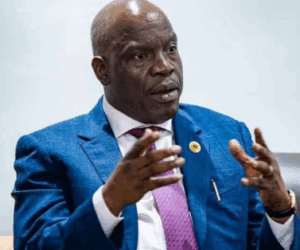1
Has anyone wondered why many of the public hearings regularly organised by the National Assembly (NASS) of Nigeria fail to reflect the will of those who made submissions during the hearing sessions? Are stakeholders who are invited to such public hearings allowed to be co-owners of that important legislative process, or are they typically invited just to fulfil the requirements of the law?
Public hearings are a critical component of citizen engagement in any representative democracy, as they are a mechanism for reflecting the will of the people in the law-making process. Yet, in Nigeria, constitutional amendment exercises, for example, (which the two chambers of the NASS regularly embark on), mostly do not reflect the demands made by the people.
This is also the case with electoral matters, many of whose amendments do not reflect the will of the people. There is a general belief that constitutional review exercises or regular amendments to election matters, for example, have become more symbolic than substantive in their upshots.
They are considered by many Nigerians as ‘mere rituals’ that serve purposes other than the will of the people for which they were intended to reflect. Many also hold the view that the review exercises that have occurred over the years are not worth the amount of money, energy, time, travel risks, and other resources expended on them by both the Senate and House of Representatives.
Public hearings in NASS are just one of the many examples of the symbolic character of citizen engagement in Nigeria, an issue that needs closer attention. This article highlights the gap between symbolic and genuine citizen engagement, offering practical strategies for deeper participation in public policy. It explores how to transform the current symbolic nature of citizen engagement into a co-owned reform process that reflects the will of the people, thereby delivering desired outcomes.
As part of its efforts to transform public service delivery in Africa, the Aig-Imoukhuede Foundation, a public-sector focused philanthropic organisation, is calling for a shift from symbolic to substantive citizen engagement processes in Nigeria’s public sector.
Its advocacy efforts are informed by the findings of its landmark study published in Public Policy and Administration Research (Vol. 15, No. 2, 2025) and titled: Scope of Citizen Engagement in Public Policy Making, Implementation, and Reforms in Nigeria: A Non-State Actors’ Perspective; and its follow-up publication in the same journal (Vol. 15, No. 3, 2025) titled: Citizen Engagement in Nigeria’s Public Policy Process: A Comparative Analysis of State and Non-State Actors’ Perspectives.
In the first cited publication, a total of 1,021 respondents consisting of representatives of civil society organisations, private sector players, service beneficiaries and ordinary citizens were surveyed, while in the second publication, a total of 593 respondents (made up of state actors) consisting of career officials and political office holders, were included in addition to the 1,021 respondents from the non-state actors’ segment.
Essentially, both studies revealed inter alia that citizen engagement remains tokenistic (using Sherry Arnstein’s terminology) and symbolic, with institutional barriers and mistrust hindering deeper participation. Both studies also revealed a critical gap: that though citizen engagement in post-military rule improved significantly, it still remains tokenistic and non-transformative.
This is because as high as 76% of respondents from the non-state actors’ group were of the view that the government and the public service do not make adequate efforts to involve civil society organisations in the formulation of policy. In support of the non-state actors’ views, 57% of state actors (both political and career officials) surveyed dismissed deeper involvement of citizens, citing “lack of expertise”, which can be seen as a ploy to perpetuate exclusion and its associated inefficiency engendered by lack of transparency and accountability. Drawing therefore from the Aig-Imoukhuede Foundation’s studies, this article argues that beneficial reforms require citizens as co-owners, not as people available for mere consultations without deeper involvement.
A useful framework with which to examine the gap between symbolic involvement and genuine, transformative citizen engagement is what Sherry Arnstein (1969) refers to as the ladder of citizen participation in the policy process. Arnstein’s eight-step ladder of citizen participation are (a) manipulation, (b) therapy, (c) informing, (d) consultation, (e) placation, (f) partnership, (g) delegated power, and lastly (h) citizen control.
The first two steps manipulation and therapy are (in the view of Arnstein) non-participatory forms of citizen engagement. In the Nigerian context, these two steps apply to the period under military rule. The next three steps, informing, consultation and placation, represent varying degrees of tokenism.
Again, if this is applied to Nigeria, these three steps represent the prevailing and dominant state of affairs. It is tokenistic because many of the consultations that occur are superficial and are merely information dissemination events, not designed to make citizens co-owners of the process. Sometimes, through placation, such as one-off offers of substantive engagement exercises, people are misled into believing that substantive engagement is taking place.
The last three steps partnership, delegated power and citizen control represent varying degrees of citizen power, which is the highest form of citizen engagement. These three steps mostly produce substantive upshots or outcomes. In Nigeria, anecdotal evidence exists that citizen engagement is gradually entering into this phase.
The use of Public-Private Partnership (PPP) is one example. Another relevant example is the Aig-Imoukhuede Foundation’s partnership with the Federal Civil Service through the Office of the Head of the Civil Service of the Federation (OHCSF). This is a model that holds promise for transforming the prevailing and dominant symbolic character of citizen engagement to a substantive one.
Through a number of strategic initiatives, the Aig-Imoukhuede Foundation is successfully partnering with the government to co-own a reform process that delivers positive outcomes. This partnership embodies evidence-based, practical strategies for embedding deeper participation in public policy development, implementation and service delivery. The effectiveness of the partnership can be seen in the following examples.
First, the Federal Civil Service Strategy and Implementation Plan (FCSSIP 2017-2020) was developed by the Federal Civil Service with funding and technical assistance provided by the Foundation. The FCSSIP was designed to identify key strategic reforms that were required to transform the public service into an efficient, productive, incorruptible, and citizen-centered (EPIC) service. The implementation of the second phase of FCSSIP 2021-2025 is still on-going.
Secondly, the Foundation partnered with the Civil Service to implement critical initiatives from the FCSSIP plan, including the digitalisation of the Federal Civil Service and a culture change programme aimed at introducing a more enabling culture into the service.
The result of this collaboration includes a fully digitalised OHCSF, ongoing digitalisation projects across various MDAs, and the introduction of a rewards and recognition system that encourages civil servants to buy into the new organisational culture. The Aig-Imoukhuede Foundation has co-owned reform projects with the Civil Service that delivers optimum benefits, thereby enabling civil servants deliver effective and efficient service to the Nigerian people.
Thirdly, the partnership has deepened the knowledge-base of the civil servants as the Foundation provides training programmes aimed at equipping future leaders of the service with the skills and tools to do their jobs better. These include the AIG Public Leaders Programme (PLP) and AIG MPP scholarship, both delivered in conjunction with the University of Oxford, as well as bespoke training focused on closing identified capacity gaps.
Lastly, through its healthcare initiative, the Adopt-a-Healthcare-Facility-Programme, delivered in conjunction with the Private Sector Health Alliance of Nigeria (PSHAN), the Foundation has adopted and is revitalising primary healthcare centres collaboratively with State Primary Health Development agencies at a sub-national level.
On the whole, the Aig-Imoukhuede Foundation has worked with the government at both the federal and sub-national level to co-own the reform process, thereby making partnership the cornerstone of the reform vision. This approach moves citizen engagement beyond symbolism, making it a driver of concrete and lasting change.
In conclusion, the OHCSF/Aig-Imoukhuede Foundation partnership, developed over a number of years and anchored on citizen engagement and participation for institutional and wider reforms, is a good example of the trust-building that is necessary to pivot Nigeria from symbolic to substantive citizen engagement. Citizens have an important role to play in the reform process, and it is hoped that partnerships such as that between the Federal Civil Service and the Aig-Imoukhuede Foundation can be replicated by other entities so that Nigeria can move from symbolic gestures to substantive citizen involvement and deeper levels of citizen engagement can be achieved.
Isaac N. Obasi is a professor of public administration at the University of Abuja, and currently on Sabbatical at the Aig-Imoukhuede Foundation (Lagos and Abuja) as a Research Consultant on Public Sector Reforms.








